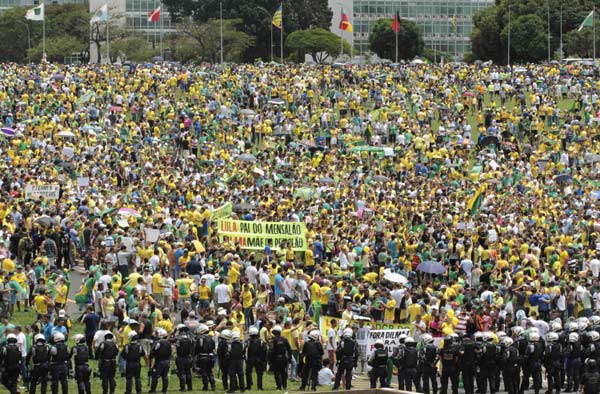Nearly a million protest Brazil's president, economy, corruption
(Agencies) Updated: 2015-03-16 11:20
 |
|
Demonstrators take part in a protest against Brazil's President Dilma Rousseff in Brasilia March 15, 2015. [Photo/Agencies] |
The party "is inciting the people against the people," said Helena Alameda Prado Bastos, a 61-year-old editor in Sao Paulo.
The Workers' Party, opponents complain, for too long ignored critiques that its heavy spending, subsidized lending, protectionist policies and corruption have sapped the vitality that led to average growth exceeding 4 percent during the decade before she took office.
Although the party also presided over those good years, during two terms of Rousseff's predecessor, economists say she failed to adjust policies when a global commodities boom ended and sapped once-soaring export revenue.
Rousseff herself has not been accused of wrongdoing in the corruption probe, but many blame her for lax oversight of Petrobras, especially during years she served as the company's chairwoman, prior to becoming president.
The ongoing scandal stems from a scheme through which prosecutors say Petrobras contractors paid kickbacks to corrupt executives and some Workers' Party members.
So grim are Brazil's economic prospects that many economists expect it to slip into recession. Investors, meanwhile, fear the country could lose its investment-grade status.
Inflation is running at a 10-year high, while Brazil's currency, the real, has lost over 22 percent of its value against the dollar this year.






